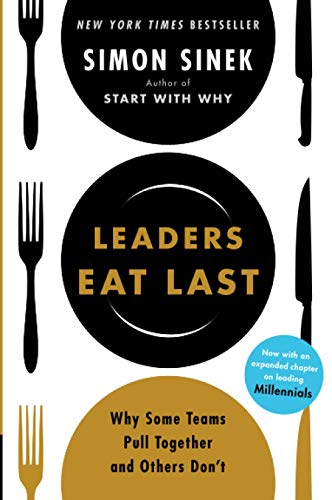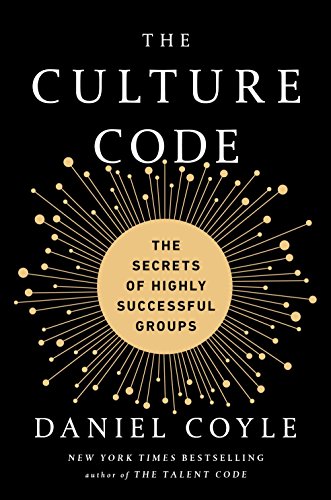Dare to Lead
Think you might want to read this book?
Dare to Lead reads as though you are sitting down with Brene Brown for a gut check over a really strong cup of coffee (hold the artificial sweetener). Through her unapologetic tone, she lights a spark in that one corner of your heart, better yet, your soul that makes you sit straight up in your bed, grab your remote as though it’s a microphone, and say to yourself - “I can do this”. I can lead. I can shift. I can ignite change through uncomfortability and commitment to the whole. Through her raw identification of ten behaviors and cultural issues that get in the way of success within organizations everywhere, she lands on a powerful message: “To scale daring leadership and build courage in teams and organizations, we have to cultivate a culture in which brave work, tough conversations, and whole hearts are the expectation, and armor is not necessary or rewarded.” Brown presents relatable anecdotes and tangible takeaways for the reader on just about every other page, which makes for an unforgettable read for educational leaders around the world.
What Would Socrates Ask?
Do we begin each team/faculty meeting giving members the opportunity to verbally opt out of or verbally commit to the sharing of ideas for that particular meeting? Could this idea be used with students in the classroom?
How do we define the skill set that is required of leaders to be courageous, bold, and daring?
Are there opportunities for students to explore emotional literacy? Are our students taught how to put down their armor, or is there no place for these kinds of objectives in schools outside of the counselor’s office?
Is there room to lead from the head and the heart? If so, do we lead from experience or do we lead from the emotion of those experiences?
If giving feedback is a learned behavior, how do we continue to stay true to our values when we are receiving feedback?
How do leaders stay curious in a culture in which curiosity is often downplayed or ignored? What should they be curious about? How do they spark true curiosity in others?
What does it look like to be afraid and brave at the same time?
Relevant Statistics
“85% of the people we interviewed could recall a school incident from their childhood that was so shaming, it changed how they thought of themselves as learners…more than 90% of the people interviewed could name a teacher, coach, school administrator, or faculty member who reinforced their self-worth and helped them believe in themselves and their ability...school leaders have enormous power and influence, and how they use that power and influence changes people. For better or worse.”
Whether we’re leading a group or a member of the team, whether we’re working in a formal or informal recognition program, it is our responsibility to say to the people who work alongside us: ‘We’ve got to stop and celebrate one another and our victories, no matter how small. Yes, there’s more work to be done, and things could go sideways in an hour, but that will never take away from the fact that we need to celebrate an accomplishment right now.’”
Concepts
Rumbling with Vulnerability during professional conversations to spark the building of trust: “What does support from me look like?” - “What questions can I try and answer?” - “Are there any stories you want to check out with me?” “Say more.”
Quotes from the author
“If we want people to fully show up, to bring their whole selves including their unarmored, whole hearts - so that we can innovate, solve problems, and serve people - we have to be vigilant about creating a culture in which people feel safe, seen, heard, and respected.”
“Daring leaders must care for and be connected to the people they lead.” “When our organization rewards armoring behaviors like blaming, shaming, cynicism, perfectionism, and emotional stoicism, we can’t expect innovative work.”
“... find a home for your armor, and I’ll see you in the arena.”
“Vulnerability is not winning or losing. It’s having the courage to show up when you can’t control the outcome.”
“If we shield ourselves from all feedback, we stop growing.”
“Trust is not earned through heroic deeds, or even highly visible actions, but through paying attention, listening, and gestures of genuine care and connection.”
“Vulnerability is the birthplace of love, belonging, and joy… without vulnerability there is no creativity or innovation.”
“We judge in areas where we’re most susceptible to shame, and we judge people who are doing worse than we are in those areas.”
“Clear is kind. Unclear is unkind.”
“At the end of the day, at the end of the week, at the end of my life, I want to say I contributed more than I criticized.”
“I define a leader as anyone who takes responsibility for finding the potential in people and processes, and who has the courage to develop that potential.”
Quotes from Others
“Most people feel a need to manage interpersonal risk to retain a good image, especially at work, and especially in the presence of those who formally evaluate them. This need is both instrumental and socioemotional.” - Amy Edmondson
“... listen with the same passion with which you wish to be heard” - Harriet Lerner
“Seek first to understand, then to be understood.” - Stephen Covey
“We are feeling machines that think.” - Antonio Demasio
“The cave you fear to enter holds the treasure you seek.” - Joseph Campbell
Implement tomorrow?
Offer up teams/students to create a safe container: ask each team member to write down something that they need from other members of the group to feel safe and supported, and one thing that will hinder their innovative mindset.
Turn and learn - with students/team, have them list three tasks by priority, count to 3, and show them to each other. Discuss reasoning. This will provide a lens through various perspectives, and it will identify areas in need of clarity.
On a 1” x 1” square piece of paper, write down the names of the people whose opinions matter to you - front only. Discuss process. Was this difficult? Easy with plenty of room leftover? What does it mean?
Gateways to Further Learning
Stockdale Paradox - Gritty Faith vs. Gritty Facts
Project Aristotle, a multi-year study by Google in which they found that “psychological safety, the act of feeling safe and vulnerable in front of team members, to be ‘far and away the most important of the five dynamics that set successful teams apart.’”
Referenced books for purchase
The applicability of this book to education is ….
Resources






